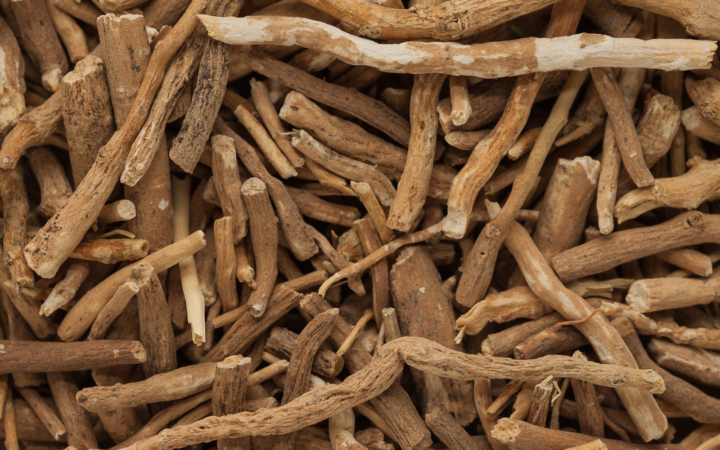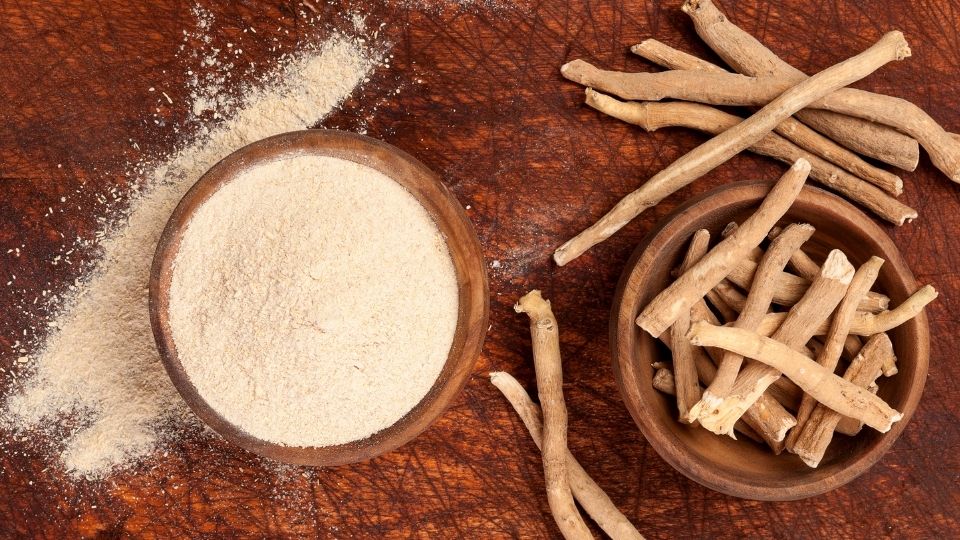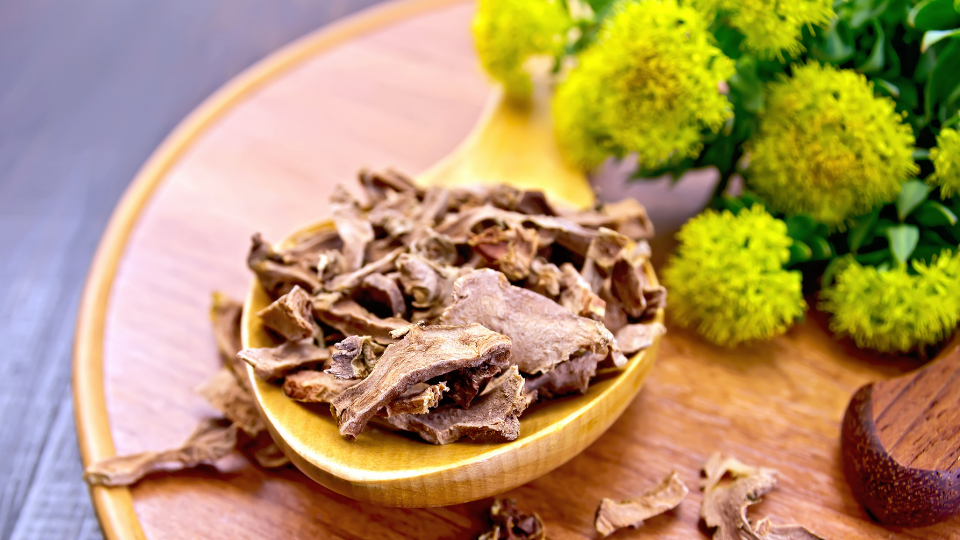Ashwagandha Vs. Rhodiola: Adaptogenic Herb Showdown

Stress is inevitable. Whether physical or mental, we experience stress constantly. Removing every source of stress from your life is impossible: you can’t run from it – nor would you want to.
However, you can encourage your body to properly adapt and react to stress with certain plants and supplements. These herbs are called adaptogens because they help make the body more resilient to different types of stress.
The Ashwagandha vs. Rhodiola debate are two well-studied apoptogenic herbs used for centuries in traditional medicine – but which is right for you?
Top Uses and Benefits of Ashwagandha
You can find Ashwagandha, or scientifically, Withania somnifera, throughout north Africa, the Levant, and southern Asia stretching from China to Yemen.
This adaptogen is available in powder extract, capsule, tablet, and liquid extract forms.
Ashwagandha boasts vast benefits across the body and mind. Indian Ayurvedic medicine is particularly fond of ashwagandha, taking advantage of its adaptogenic properties for over three thousand years.

1. Lowers Cortisol Levels
Let’s jump right into the issue of stress, shall we? Lots of research shows that Ashwagandha is especially beneficial for reducing cortisol levels, which is the dreaded stress hormone. (1)
2. Decreases Blood Sugar Levels
Several studies on patients with diabetes found that Ashwagandha successfully lowered blood sugar levels. One study even found it was as effective as prescription diabetes medication. (2),(3)
3. Reduces Symptoms of Anxiety and Depression
Ashwagandha is particularly well researched for its anti-anxiety and anti-depression qualities. When people with chronic stress took ashwagandha for a study, they reported a 60% reduction in symptoms, including insomnia. (4)
4. Helps Balance Male Hormones
When it comes to ashwagandha vs. rhodiola for men’s health, there’s no question that ashwagandha is the obvious choice for supporting healthy testosterone levels.
Not only does it increase testosterone, but it can also improve fertility by increasing sperm count, mobility, and quality. (5)
5. Improves Memory and Focus
Ashwagandha has both anti-inflammatory and antioxidant properties. These qualities mean ashwagandha can protect nerve cells in the brain against damage, oxidative stress, and disease. Studies show that people who take ashwagandha display better memory and concentration. (6)
6. Reduces Inflammation
Several studies have examined ashwagandha’s ability to reduce and protect against inflammation. The antioxidants in ashwagandha can also stimulate natural killer cells, which are essential for defending your body against invading disease and supporting the immune system. (7)
Top Uses and Benefits of Rhodiola
Rhodiola rosea goes by several names including arctic root, golden root, and king’s crown. Unlike ashwagandha, you can find rhodiola in northern regions of Europe and Asia – including high in the mountains. Russia, Korea, and China have all taken advantage of rhodiola’s therapeutic benefits for centuries.
You can purchase rhodiola in three forms: powder extract, liquid extract, and capsules or tablets.
Similar to ashwagandha, rhodiola is another adaptogen with its own methods of action, antioxidants, and benefits.

1. Reduce Symptoms of Depression
Adaptogens make excellent supplements for supporting mental health because they encourage balanced brain chemistry. Researchers believe that rhodiola can balance neurotransmitters in your brain – a job typically accomplished by antidepressant medications. (8)
Participants in clinical trials reported a reduction in depression symptoms and insomnia. People who took higher doses even experienced improved self-esteem. (9)
2. Keeps Your Brain Sharp
When it comes to ashwagandha vs. rhodiola, rhodiola is the answer for improving mental energy. It’s so potent that it even improves energy in people with chronic fatigue syndrome. (10) People started to notice remarkable changes in their mood and quality of life after just one week of taking rhodiola.
3. Supports Healthy Blood Sugar and Insulin
Rhodiola supports healthy blood sugar because it helps the body move glucose to cells. Additionally, studies on mice found rhodiola can help control diabetes. (11) As high cortisol (stress hormone) levels over a long period increase blood sugar levels, it wouldn’t be surprising if rhodiola’s stress relieving properties also play a role in its ability to reduce blood sugar levels.
4. Improves Physical Energy and Stamina
Russian athletes and soldiers have taken advantage of rhodiola for decades thanks to its ability to improve physical performance. It’s the ideal drug-free performance enhancer. (12)
Rhodiola works by making exercise feel less exerting, so it’s excellent for anyone new to exercise who needs an extra push to make it through their strenuous workouts.
Potential Side Effects and Interactions
Just like any substance on the planet, rhodiola and ashwagandha each come with their own sets of side effects and interactions.
Rhodiola can stimulate the immune system, lower blood sugar, and reduce blood pressure. For these reasons, anyone with an autoimmune disorder, diabetes, or low blood pressure (or on blood pressure medication) should probably avoid rhodiola.
Ashwagandha can stimulate the immune system, lower blood sugar levels, lower blood pressure, stimulate the thyroid, and relax the central nervous system. Anyone with an autoimmune disorder, diabetes, low blood pressure, or an overactive thyroid (or on medication) should talk to a doctor before taking ashwagandha.
It’s also important to avoid taking sedatives with ashwagandha due to its powerful effect on the central nervous system. Rhodiola has no known drug interactions.
Breastfeeding and pregnant women shouldn’t take either of these herbs. The safety isn’t confirmed yet.

Ashwagandha Vs. Rhodiola: Which is Right for You?
Now you know the benefits and side effects of ashwagandha vs. rhodiola, but how do you decide which supplement is right for you?
If you can only add one supplement to your routine, use the answer to this question as a deciding factor: do you want a substance that stimulates or relaxes the central nervous system?
- If your main concern is anxiety, sleep, and relaxing your brain, go with ashwagandha.
- If energy and physical stamina are what you need, choose rhodiola.
There isn’t any particular reason you can’t combine ashwagandha and rhodiola for ultimate benefits.
Many people like the calming and focused energy they get from taking both supplements together.
Each herb has its own unique properties and benefits, so why not take advantage of both simultaneously?


I’ve been taking both, not everyday and not always together. Maintaining a healthy diet, exercise and life style is my top priority!
This was great research and very important information. Excellent article. I’ve shared!!!
Thank you tremendously for writing this! You’re amazing!!!
Glad you liked the article! And you are so right about healthy diet and exercise. I like both these adaptogens… although I take Rhodiola much more often.
makes sense, rhodila builds up dopamine, the true happy molecule (and of addiction as well of course, lol)
what is the combo like? they are 50% similar the rest is opposing, how that combo does not neutralize its benefits at best or not cause either serotonin syndrome (since both are acting as natural ssri’s and in fact rhodiola is hypothesized to also be also a monoamine oxidase both b and a, thus even more potent in increasing these chemical messengers) or nausea or both? and how would you describe the experience? thank you in advance
I find your article fascinating and very educational. It is hard to find non-promotional information
that expresses the benefits of natural supplements vs commercial drugs. In a world that relies on pharmaceutical drugs to address these areas, and thus prey on people’s desire to improve certain areas in ones life, whether it be lowering your stress, improving focus. or just assisting your ability to neutralize free radicals that are very detrimental for people, especially as they age. Most of us all face at some point and time many stressors that tax are system and accelerate the break down of “normal and beneficial” free non-radical cells-it is refreshing to find articles such as yours that focus solely on the positive effects of supplements that may be gained as we educate ourselves on how to maximize a healthy lifestyle,
Hi, I was told to take Rhodiola Rosea complex supplements after being on Chantix for 7 days, which totally screwed my brain over. That was 10yrs ago, and I still have big issues with darkness, anxiety, depression, and brain farts. I used to be involved in a blog for people that had adverse reactions to Chantix (champix here in NZ), and there was a brain scientist in the blog that agreed that Rhodiola Rosea was a good herb to take for the maintaining of the brains ssri uptake. Rhodiola is hard for me to get now, and I am needing to find something to help me balance out my life/work/ relationship/ family etc.
I have gravitated towards this article because, I am wondering if Aswhaganda could benefit me more than Rhodiola, as Rhodiola is becoming harder to find in the grammages i was taking. ( I dont even know if grammages is a word, but it should be) lol.
If anyone has any help please send me a reply to my email…
Desperately trying to grasp life
Rio